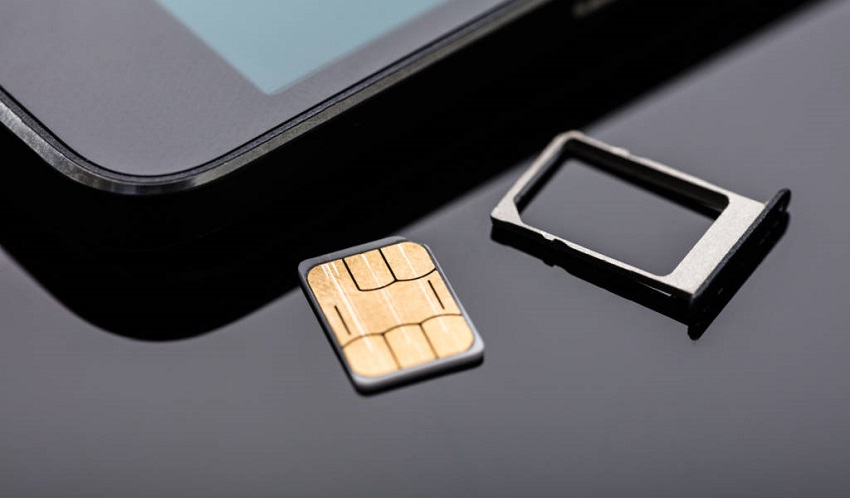Prominent players in the tourism startup sector believe that tourist SIM cards are not a priority for solving the country’s tourism problems. They emphasize that this issue is not a significant concern for the tourism industry and may even cause more indirect harm to the market.
According to IDEA, In recent days, news of the launch of tourist SIM cards has been circulated, a piece of news that was finally confirmed by the Deputy Minister of Tourism of the country on the 2nd of Mehr (September 24th). The news of the tourist SIM card, which was introduced in Esfand (February) of the previous year, faced negative reactions from the public from the very beginning. Nevertheless, the Minister of Tourism, despite all the criticisms, emphasized his insistence on the introduction of such SIM cards and declared that society has reached a general consensus on the introduction of these SIM cards, although no official source or statistics have been released to show how society has come to a consensus on this issue.
Ezzatollah Zarghami has regarded the presence of tourist SIM cards as a necessity for the country’s tourism market and has stated that it is one of the reasons preventing the presence of foreign tourists in Iran.
In the latest official reactions to these SIM cards, one of the parliament members referred to this initiative as a form of cultural capitulation. Active and prominent startups in the tourism sector also emphasized that they are not in favor of introducing these SIM cards without filters. The CEOs of these companies believe that offering tourist SIM cards does not solve the problems of tourism.
More Important Matters than Tourist SIM Cards
Nima Ghazi, CEO of Alibaba, said about the introduction of these SIM cards: ‘To increase the capacity for hosting international tourists, we can compile a long list of infrastructural requirements and needs. Providing these infrastructures will greatly contribute to the country’s economic growth, improving Iran’s international image, and fostering the growth and development of companies active in the tourism sector. Addressing the concerns of the tourism industry means that these very needs are met for the Iranian people as a whole. Perhaps in this same domain of travel, developing transportation and domestic accommodation infrastructures take higher priority than something like tourist SIM cards.’
The Indirect Impact of Tourist SIM Cards on the Tourism Ecosystem
Amir Hasanzadeh, Senior Marketing Manager at Flighto, also expressed his opposition to the introduction of tourist SIM cards: ‘As an active business in the technology ecosystem, we are by no means in favor of this initiative. This initiative, or similar initiatives, may seem beneficial to the tourism industry on the surface, but if we look at tourism from a higher level, implementing such a plan could cause more indirect harm to the ecosystem, stakeholders in the tourism industry, and society.’
Hasanzadeh mentioned that the number of foreign tourists entering the country has decreased year by year, and the tourism industry has become smaller. He stated that the Ministry of Cultural Heritage, Tourism, and Handicrafts should create initiatives and take action to improve this situation. However, from Flighto’s perspective, offering tourist SIM cards is not the right solution for this issue: ‘Creating positive discrimination for foreign tourists and a limited number of players in the tourism industry, such as tour leaders, through providing internet access without filters, is not intended to address the main obstacles to the progress of Iran’s tourism. There are other fundamental issues that need to be prioritized for us to witness an increase in the entry of foreign tourists.’
In response to the question of whether tourist SIM cards can benefit foreign tourists or not, Hasanzadeh said: ‘If we want a short-term and unsustainable solution to create an advantage for foreign tourists, the implementation of this plan may seem reasonable on the surface. But the reality is that we should consider the long-term benefits of all the various players in the tourism industry, not just focus on a small part of the larger chain of stakeholders and ignore the interests of others. The implementation of this plan and tourists’ unrestricted access to foreign messaging apps must be considered in the current cultural and social context of society, and from our perspective, this plan may not be helpful and may bring about multiple issues. The Iranian tourism industry is currently facing various problems. Instead of implementing such a plan, it is better to prioritize infrastructural issues.
Security, Financial, and Operational Concerns of Tourist SIM Cards
Hamidreza Ashja’, the CEO of Mrbilit, also briefly discussed the introduction of tourist SIM cards and their impact on the country’s tourism. He said, ‘Naturally, the presence of a different SIM card (with unrestricted internet access) for foreign tourists traveling to Iran, given their need to access useful websites and communicate with others, can be a facilitator. However, it should be noted that the main problem of inbound tourism in Iran is not the internet (which needs to address more important issues as a priority). Also, this different SIM card, in terms of security, financial, and operational concerns, needs to be examined from the perspective of foreign tourists in order to be truly useful.’
Key players in the online tourism sector believe that a non-filtered SIM card specifically for tourism is not the main problem for foreign tourists and industry players. They also stated that there is still no mechanism for how these SIM cards will be offered to them. However, the beliefs of more traditional players in this field about the introduction of this type of SIM card and how the government has concluded that there is public consensus for the introduction of tourist
SIM cards in the country are questions that cannot currently be answered. Nevertheless, it should be noted that tourist SIM cards are a clear example of tiered internet, and there have been numerous reports of opposition from the general public and online businesses to them.





No Comment! Be the first one.